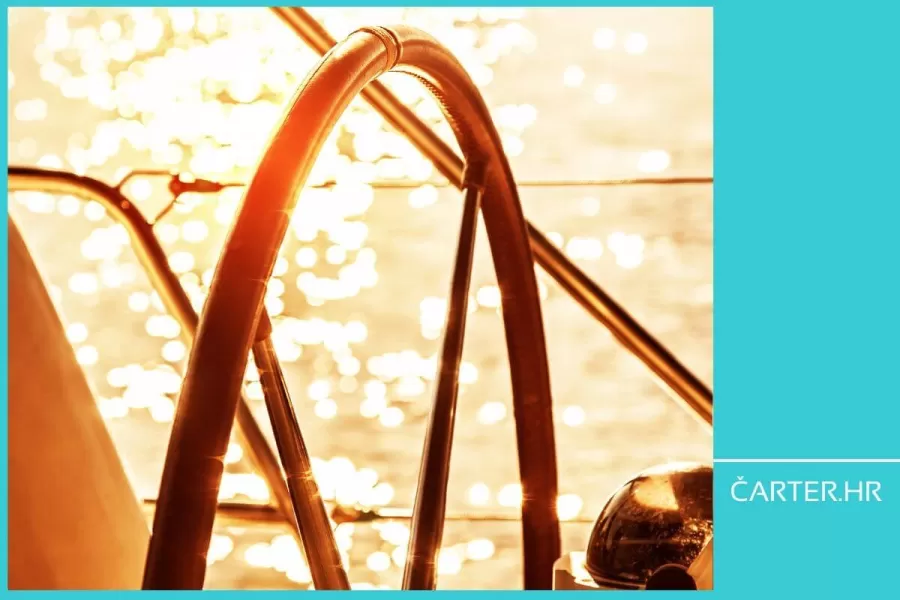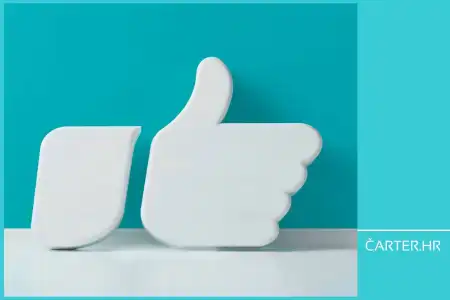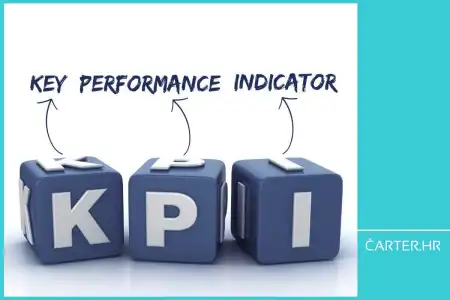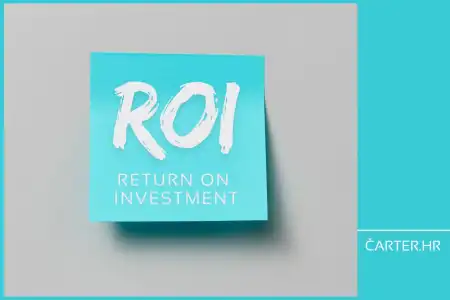
- 09.10.2023.
- News
Adria Libar, a well-known maritime training centre, has partnered with sailing academies to provide future skippers with high-quality training, primarily through hands-on experience. Why? Because what future skippers lack the most is precisely the practical experience. Through answers to questions about the collaboration between the training centre, experts, and instructors, let's find out what it takes to become a good (and responsible) skipper.
In recent years, the general public opinion has been that anyone can become a skipper. The word "out there" is that you can get a skipper's license relatively easily in Croatia - you pay, and you have it.
But (because there's always a "but"), there are those who do their job the way it should be done. They also strongly advocate: Learn, master—and then sail the Croatian coast.
Approaches to skipper training are not uniform, and in recent years, it has become clear that such training needs to be elevated to a higher level.
Has this been achieved, and how?
We asked the Adria Libar Maritime and Yacht training centre how they have worked on improving practical training for future skippers.
Their answer was - through collaboration with sailing academies.
So we also contacted the sailing academies with which the training centre collaborates to better understand the challenges faced by both the students and themselves.
How did the idea and realisation of collaboration with sailing academies come about?
For Adria Libar, collaborating with sailing academies was a logical step, as their managers and instructors are very experienced skippers. They are professionals, sailors who have completed official courses at the academies, obtained official permits from the Ministry for commercial activities, and have invested a lot in their work with students.
The key to the whole story is their experience gained at sea. Through programs prescribed in Croatia for skipper training or recreational boaters who want to obtain a license to operate a vessel, we have encountered a practice that often was insufficient for students to independently operate a vessel.
After very detailed preparation through the theoretical part of the courses and very little practice, the students showed knowledge and success in the exam. Still, there remained that insecurity - that the moment they take the license in hand, they also take responsibility for operating the vessel.

As in everything, you think practice is key?
It is definitely the key. You can try to simulate sailing situations at sea with all possible tools, but taking the helm, ropes, anchor, and sails in hand - that is the real feeling and experience for the students.
Among the sailing academies, we found the best partners. Each of them is special in their own way, but they have one thing in common - a great desire to pass on skills and passion for operating a vessel, but also much more than that.
When an accident occurs at sea, we often read: "Where did this person train? Who gave them the license?" What is the training centre's comment on all this?
Each of us involved in nautics carries our share of responsibility. You can't put everything under the same denominator, neither people nor the schools.
Adria Libar always carries out its part of the job with the thought of how to take another step further, how to improve, how to pass on experience, how to talk about education as something positive and important for personal development, and how to perceive Croatia as a progressive country.
For us, students are not just passing through - the trust we have with them is the result of mutual communication. These are people for whose destinies we are responsible through our work.
We have never identified with negative criticisms of Croatian licenses.
Moreover, we firmly stand in front of the role of an educational institution. Where we cannot change the law, we change ourselves. For shortcomings in programs, we find ways and solutions for all those who think in this direction.
The best way to dissuade others is through good practice and collaboration examples.
Adria Libar's associates answer: "How to be a good skipper?"
Adria Libar's associates, Mario Kundih (Yachting in Croatia), Matea Kobeščak (Vodan Yachting), Darko Majce (Skipper4you), and Toni Brkić (Croatia Sailing Academy), are part of a positive circle of professionals who, together with the training centre, create educated skippers.
So, we asked them several questions on the topic of skipper training. We can say that on this occasion, we got an insight into the real picture and a complete answer to the question: How to be a good skipper?
Why Adria Libar?
Mario Kundih: We chose Adria Libar because it is an institution that offers a wide range of courses for seafarers and yachtsmen at the highest level in terms of service quality.
It's extremely easy to communicate and establish a professional relationship with them, and they are very courteous, prompt, and responsive whenever we contact them. They have excellently organised bases where they conduct student training. These are Rijeka, Zadar, Split, Zagreb, and Šibenik, and they are where we run our courses.
They continuously invest in promoting their services and global nautics at various fairs, as well as through digital media.
Ultimately, feedback from the students is the most important because it is essentially a true work reference and is always at a high level.
They are definitely wonderful people with whom it's pleasant to collaborate, and we recommend their courses to everyone.
Matea Kobeščak: Adria Libar, as an institution with a very long tradition of educating seafarers, represents an exceptional partner whose area of activity complements our skipper and crew education programs.
The training centre covers mandatory education for all crew members. It enables the general operation of skippers and crews in Croatia through programs prescribed by the Ministry of the Sea, Transport, and Infrastructure.
Darko Majce: Adria Libar was the most cooperative of all training centres.
They were ready to talk about our needs as an agency that provides education for skippers and to create, we can say, a custom-made product.
Adria Libar constantly invests efforts and resources in promoting education and all forms of improvement, and our students have been praised for their lecturers.
Toni Brkić: We chose Adria Libar because of their professionalism and the level of service they provide us. They are certainly the most serious partner in the maritime training centre market, and this has been proven in practice over the years of cooperation.
How do you contribute to navigation safety in a partnership with the training centre?
Mario: By trying to pay special attention during the theoretical and practical part of the lessons to navigation safety in the best possible way.
Through joint partnership activities, we strive to continuously improve and work on factors that enable the highest quality education for future sailors and thus enable safe navigation.
Matea: In our partnership, we ensure that new and future skippers, when taking over a vessel for the first time as commanders, have both theoretical and practical knowledge, as well as the licenses and certificates they need to perform their jobs efficiently and professionally.
Our partnership is an excellent platform for exchanging knowledge and experience. On the one hand, we from the field, as skippers, crews, and agents who, listen to the market and define the need for upgrading in education. On the other hand, Adria Libar is a training centre and institution that has more direct contact with the existing mandatory curriculum and recognizes the need for its further development.
Darko: After the lectures given by Adria Libar, we do the practical part, lasting 3 weeks. This way, we further educate future skippers who apply the acquired knowledge during navigation through all seas.
Toni: The Boat and Yacht Regulation, unfortunately, prescribes very little practical teaching. Therefore, we complement very well with Adria Libar, as we provide additional practice to the students right on the vessels.
Practice acquisition used to be based on acquaintances and random mileage collection. Now, through joint programs, we can turn a completely inexperienced candidate into a professional in just a few weeks.

In your opinion, what are the shortcomings in the regulated educational programs?
Mario: The main drawback is the too-small prescribed hourly practice rate by the Ministry of the Sea, Transport and Infrastructure. And that is essentially an upgrade to a very important theoretical part and the best preparation for independent navigation.
That is exactly why we, Yachting in Croatia Academy, in cooperation with the World Yachting Charter and Adria Libar Maritime Training Centre, created a very popular program, especially among foreign citizens. And mostly because of the intensive practice we have created specifically for our students.
Matea: Regulated educational programs that obtain a license to work as a professional skipper, unfortunately, have very little contact with the real needs of skippers on the field.
Particularly, in order to take over the boat as a professional skipper and start working according to Croatian law, you need a license to manage a boat of category C, for which lectures last 3 days and practical lessons are insufficient.
In addition, the C category is the same for all skippers regardless of the type of vessel on which they sail. It does not differentiate between a skipper on a speedboat for day trips, a sailboat, a catamaran or a motor yacht.
Darko: In my opinion, the biggest drawback is the absence of the practical part of the exam in the Port Captains. For this reason, we at the Skipper4you.com academy have developed a 3-week program emphasising practice. The same program called "Become a skipper" has been successfully implemented since 2007.
Toni: As I already stated, it is certainly a lack of practice.
What is the structure of the courses, and how are they adapted to the needs of the participants?
Mario: The course structure that we conduct together in tandem is adapted to those encountering this material for the first time. It's also for those who already have some experience at sea but want to refine their knowledge and pass the international skipper license category C.
Matea: Vodan Yachting is a skipper academy, and although our instructors also conduct sailing school programs for the public, our main focus is educating future professional skippers.
The difference between these two programs is significant.
Both contain the theory and practice of sailing and manoeuvring the vessel. While the sailing school teaches participants how to be good clients in charter, the skipper academy teaches them how to be good professional skippers.
Darko: The structure is fine, and the courses are adapted to the participants. From a business perspective, a participant gains a professional license in 3-4 days, with which they can start a trade or a company and are already in the job market.
Toni: Our courses are focused on acquiring practical skills, and therefore, we have maximally adapted the programs to market needs. Considering that in Croatia, 90% of skippers work in nautical tourism after obtaining a license, we have adapted the course programs to that.
So our courses cover everything a skipper needs to enter the job market, from manoeuvring the vessel and sailing to communicating with guests and safety briefings.

What challenges do participants face without enough practice?
Mario: The biggest challenge participants face is manoeuvring the vessel, docking in the marina, and mooring under various weather conditions.
This is definitely the most interesting and most important part for everyone because sailing in and out is a manoeuvre that always causes a dose of positive nervousness and depends on the safety of the vessel and crew members.
Matea: In the life of a professional skipper, sailing makes up only 20-30% of the total workload.
The rest are skills of route planning, organizing moorings, solving technical problems on the boat, communicating with often demanding guests, communicating with the yacht charter, and unnoticeably solving problems so clients can enjoy an unburdened vacation.
The job of a skipper is physically and mentally demanding, working under difficult conditions and in situations where self-sufficiency is required. It's a stressful job that is almost impossible to do without quality practical preparation, which is almost non-existent in legally regulated courses.
Darko: These are big challenges, and they often end with damaging events. We witness constant snagging under the bridge in Mali Ždrelac and various groundings.
I'm not saying this is only due to a lack of practice, but the fact is - when participants go through quality practical teaching, they will be more cautious and have more respect for the sea.
Toni: We approach all participants as if they have no prior knowledge.
Of course, those who come with experience more easily master all elements of the course, but the programs are adapted to everyone.
How important is practical experience in obtaining licenses?
Mario: I believe the practical part is the most important because you can always repeat the theory yourself, and the practical part exclusively with an instructor.
That's why it's very important to focus on the participants, specifically regarding the practical part at sea, so that they get as much accurate information as possible and slowly start to gain automatism, which, of course, comes with time.
Through our course, participants gain extensive theoretical knowledge and the most important information, along with some basic practical knowledge - which needs to continue to be refined through courses and sailing.
Matea: Our academies seem relatively short, considering the total knowledge that needs to be mastered to do this job well. Remember that skipper academies are the bridge between the scant curricula prescribed by the Ministry for obtaining a license and the requirements that the increasingly demanding market puts before skippers. The decision is left to the conscience of the participants whether they want additional knowledge.
Every year in the news, we read about the consequences of employing skippers without experience and sufficient education.
Although experience is key for us as an agency and our partners among charter companies, the Ministry has not recognized the importance of "miles" or "days at sea" for awarding certificates to yachtsmen. Even though these used to be criteria for taking exams, yachts are getting bigger and technically more demanding every year, as are the guests.
Darko: It's extremely important because all theory falls apart if practice doesn't follow it.
In simple terms, you can be a doctor of nautics, but if you don't know how to safely take a boat to sea, manage it safely, and safely bring it back to port, then you can't consume all the theoretical knowledge.
Toni: The most important thing is to respect the sea and the forces of nature. Then, anyone can sail any sea or ocean.

What is the role of instructors and mentors in the entire training process?
Mario: The role of the instructor and mentor is to methodically approach each student with pedagogical principles in the best possible way so that the transfer of knowledge is the most effective.
They must direct the participants to the most important details because it is a broad subject. At the same time, they must emphasize the most important things so that the participants get the best quality and most important things from the course itself.
Of course, when imparting knowledge, I believe that the lecturer and instructor should also be as interesting as possible during the lecture - to keep the participants' concentration and attention throughout the course.
Matea: The role of the instructor is important in terms of transferring knowledge to new generations of skippers and in terms of support and a safety net in which freelance skippers can perform their work more safely.
It's also important to emphasize that the instructor initially dispels some myths and prejudices about the skipper job. New generations systematically enter the nautical world with a serious and responsible attitude and understand the need for continuous education and training.
In cooperation with Adria Libar, we can be sure that our skippers will have a solid foundation for breaking through in this extremely dynamic industry.
Darko: In the vast majority of cases, the instructor is a role model, the person the students want to become. He is fearless and self-confident - he is everything that every student wants for himself.
Our task is for the instructors to impart quality knowledge to the participants and to be their mentors in the initial weeks of being a skipper.
Toni: Their role is crucial in the entire training process.
As in any business, firm, company, academy, or something else, it is as strong as the strong and capable people working there. Finally, the skippers we create are the image of their instructors.
Therefore, we try to constantly improve our instructors through additional training and development.
Challenges and the future for new skippers
Are you interested in how Adria Libar and sailing academies work and cooperate?
Join them again this year at the Biograd Boat Show, where the training centre organises a panel lecture with its partners.
This is an opportunity to get to know the training centre better and use all the essential information that will help you prepare and seriously dedicate yourself to this challenging (but special) profession of skipper.
Categories of trends
- News
- Sale
- Marketing
- SEO
- Web design
- Social media
- Technology
- Regulations
- Management
- Education
- Finances
- User experience
Newsletter
Sign up for the newsletter and receive the latest trends and tips straight to your inbox



